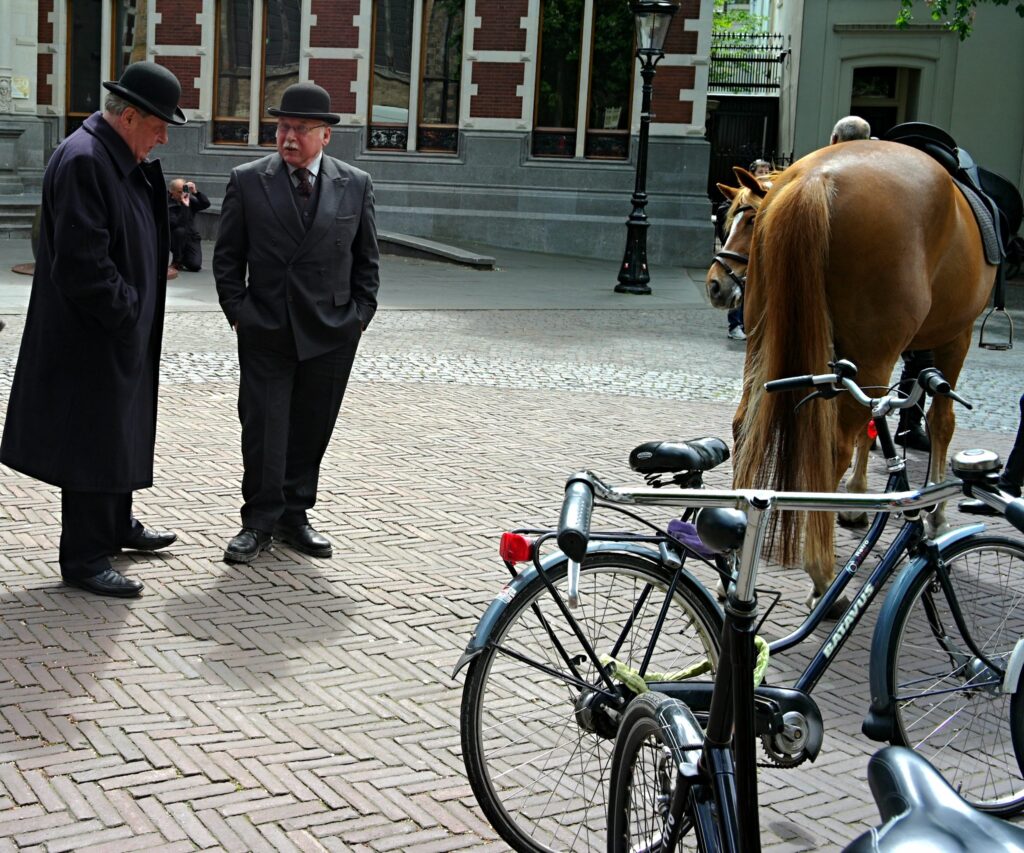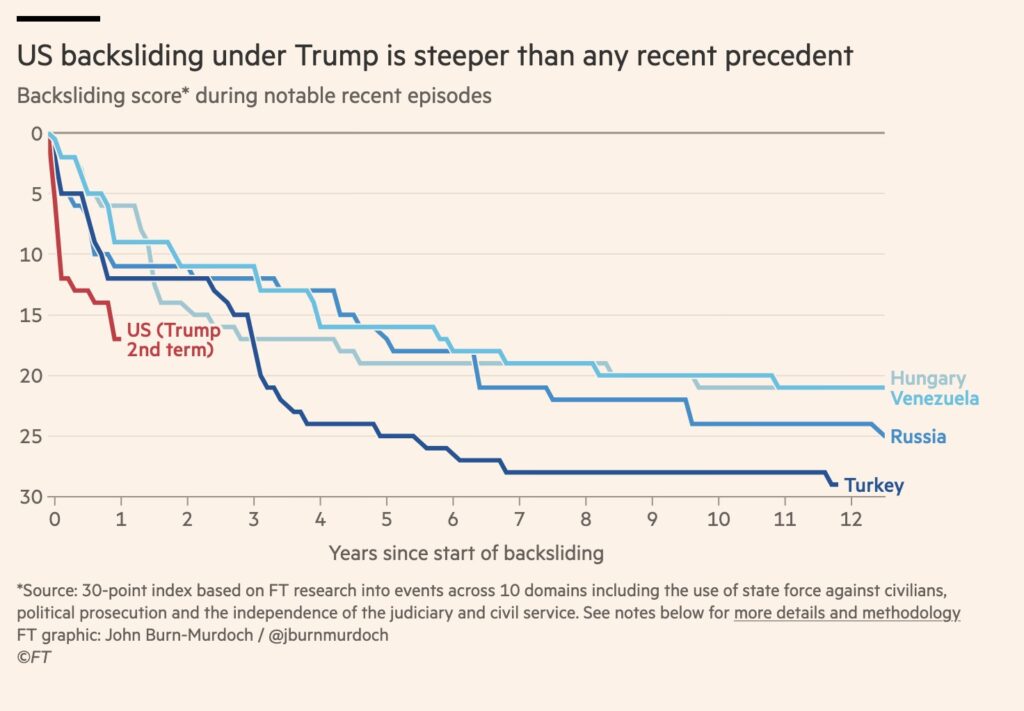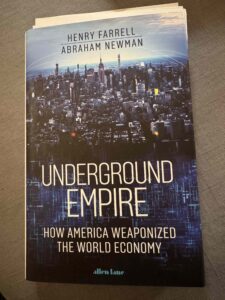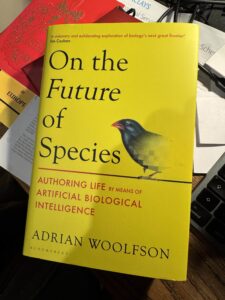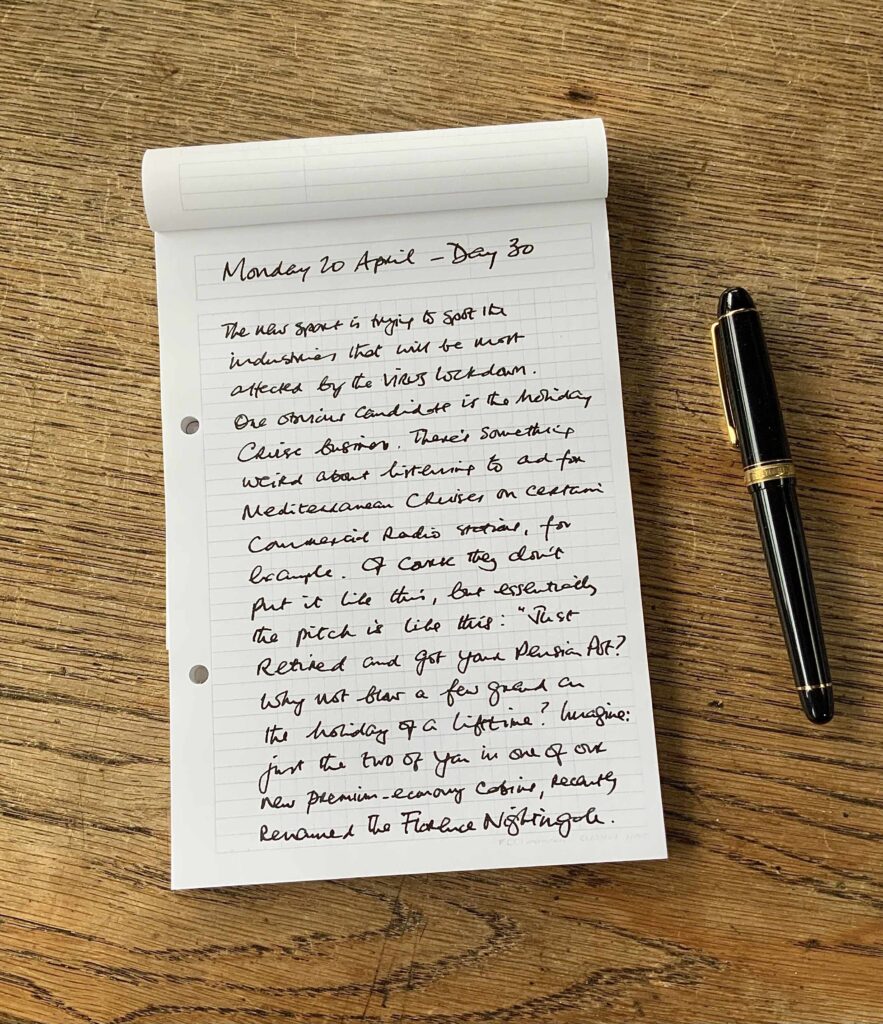Gardener’s World

Lovely mural in an East Anglian village.
Quote of the Day
”I’ve always expected the worst, and it’s always worse than I expected.
Musical alternative to the morning’s radio news
Bruce Springsteen | Streets of Minneapolis
Link
“I wrote this song on Saturday, recorded it yesterday and released it to you today in response to the state terror being visited on the city of Minneapolis. It’s dedicated to the people of Minneapolis, our innocent immigrant neighbors and in memory of Alex Pretti and Renee Good. Stay free, Bruce Springsteen.”
Long Read of the Day
The lines have been drawn
Silicon Valley must decide which side it’s on.
Admirably clarifying post by Brian Merchant.
A nurse in the intensive care unit at a veteran’s hospital, summarily executed in the street, in front of a half dozen iPhones taking video. Another deliberate and brazen lie of a statement from Kristi Noem, Stephen Miller, and the White House that contradicts every shred of evidence collected from multiple angles. So this is how it’s going to be. All of the pieces were on the table already, and now they have all been slotted together. Trump says he’ll only take ICE out of Minnesota if they hand over the voter rolls. The lines have been drawn.
At the very least, this is instructive. Take a look online. Whether state officials or rightwing influencers or tech billionaires or anonymous X reply guys, those willing to deploy pretzel logic to justify the shooting in the back of a man who had never made an act of aggression, or to subjugate logic itself to their ideology and brush the killing aside, behold our modern state propagandists. These are the voices party to the rise of actual, dyed-in-the wool, American fascism. These are the individuals and groups lining up to embrace Orwell’s famous edict1, denying their senses because the party tells them to, or on behalf of their hate.
This can be clarifying, understanding finally and fully that there is indeed already a large network of powerful and public figures willing to support unalloyed authoritarianism, no matter the injustices it perpetrates. You cannot argue with these parties on grounds that the excessive force and summary killings and detainments of American citizens is antidemocratic or unconstitutional, they do not care. That is not their project. You will never convince them with argument or evidence that their side cannot kill its enemies at will, and that too is clarifying. The pro-monarchist, anti-democratic voices in Silicon Valley have at least been open about this…
Right on cue, a memo from Apple’s CEO, Tim Cook, to all staff, leaked out. This is what it said:
Team,
I’m heartbroken by the events in Minneapolis, and my prayers and deepest sympathies are with the families, with the communities, and with everyone that’s been affected.
This is a time for deescalation. I believe America is strongest when we live up to our highest ideals, when we treat everyone with dignity and respect no matter who they are or where they’re from, and when we embrace our shared humanity. This is something Apple has always advocated for. I had a good conversation with the president this week where I shared my views, and I appreciate his openness to engaging on issues that matter to us all.
I know this is very emotional and challenging for so many. I am proud of how deeply our teams care about the world beyond our walls. That empathy is one of Apple’s greatest strengths and it is something I believe we all cherish.
Thank you for all that you do.
Tim
Now Tim Cook, I believe, is a nice person and a good man, but this seems like a pretty feeble effort — especially coming from someone who had accepted an invitation to the White House to watch a private screening of the upcoming Melania Trump documentary just hours after Alex Pretti’s murder. It reminded the veteran Apple-watcher, Jon Gruber, of George Orwell’s famous essay, “Politics and the English Language” and triggered a searing critique of the Cook memo on his Daring Fireball blog.
Cook avoids most of the sins Orwell describes. He uses short, common words. He eschews hackneyed metaphors. He uses the active, not passive, voice — for the most part. His prayers and sympathies are “with everyone that’s been affected.” Who, exactly, has been affected? Affected how? By whom? Numerous examples come to mind, but not from Cook’s memo. Two Minneapolitans were affected, quite adversely, by being shot in the head and back at point blank range, in broad daylight, by unhinged ICE goons. A five-year-old boy — himself a U.S.-born citizen — was affected when ICE agents apprehended his father, used the boy as bait to lure other family members, and is now being held in a notorious detention center in Texas, a thousand miles away.
The list is long, the stories searing. But Cook mentions nothing more specific than “everyone that’s been affected”. Such phraseology is needed if one wants to name things without calling up mental pictures of them, indeed.
“This is a time for deescalation,” Cook wrote. But by whom? The masked federal agents laying siege to Minneapolis, brutalizing its citizenry? Or the thousands of law-abiding citizens protesting the occupation of their neighborhoods, who are, in the words of Seth Meyers, “deploying the most hurtful weapon of all, the bird”? Cook’s call for “deescalation” is meaningless without specifying which side he’s calling upon to change course, and there’s no weaker sauce than the weak sauce of “both sides”. Using words, not to make a point, but to avoid making a point while creating the illusion of having made one, is the true sin.
Tim Cook is the least obnoxious of the techlords who have sucked up to Trump and MAGA. But he too has done his creepy duty of abasement. And Gruber nails it.
Footnote The aforementioned goons are now on “administrative leave” instead of in police custody.
Errata
I used the phrase “dressed like an Eskimo” the other day when explaining why I had once turned down an invitation to go to the Davos gabfest years ago. Tony Barake wrote to point out that,
“Eskimo” is widely considered an offensive, derogatory, and outdated term, particularly in Canada and Greenland, where it is viewed as a racist, colonial slur. While it was historically used to describe the indigenous peoples of the Arctic, most, though not all, of these communities now prefer to be called by their specific, proper names, such as Inuit.
Sometimes, being a blogger can be mortifying :-(. Which is only right and proper.
This Blog is also available as an email three days a week. If you think that might suit you better, why not subscribe? One email on Mondays, Wednesdays and Fridays delivered to your inbox at 5am UK time. It’s free, and you can always unsubscribe if you conclude your inbox is full enough already!
